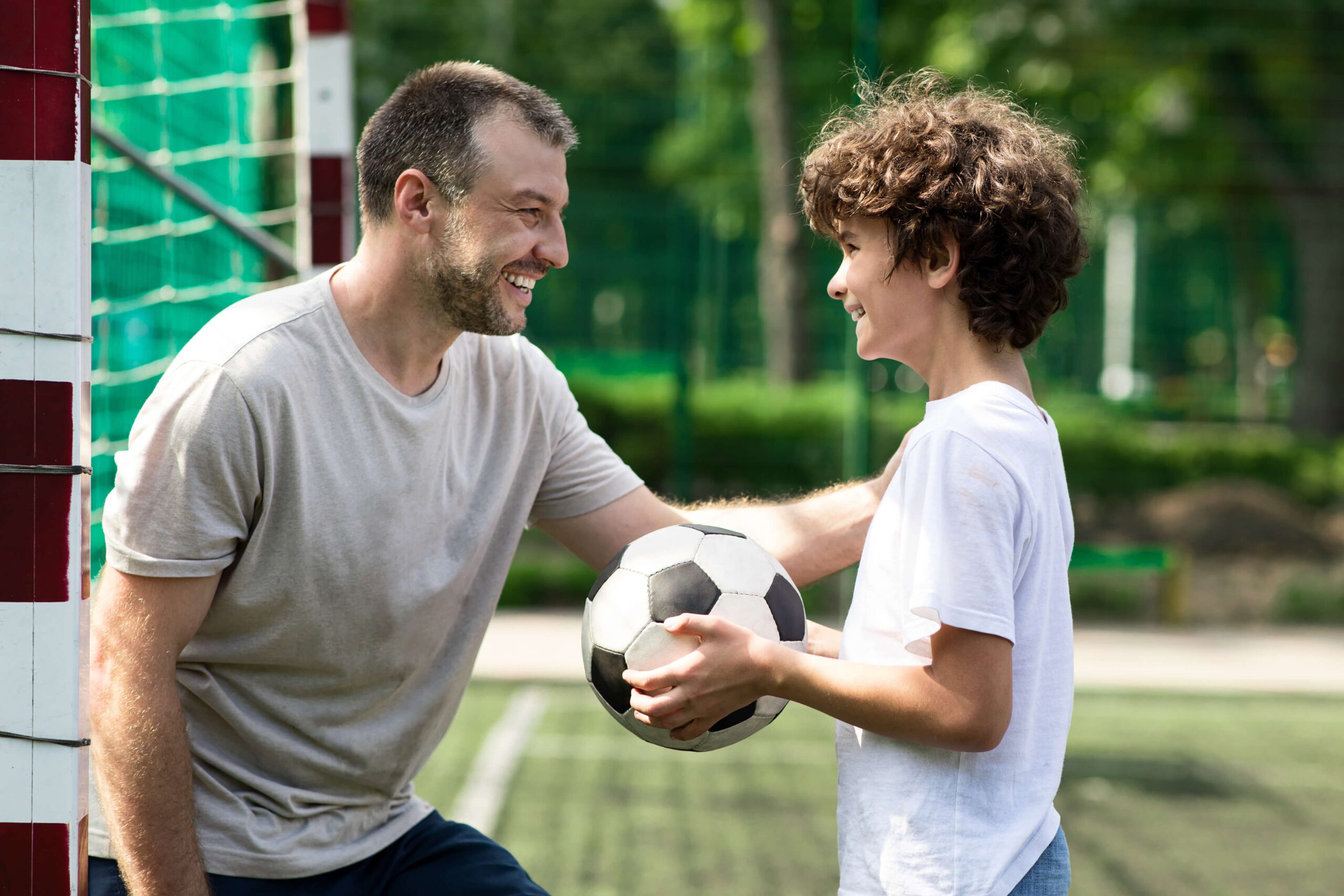We’re excited that you’re interested in joining our Kansas City mentorships program! Many of the youth we serve haven’t had the opportunity to build consistent, healthy relationships with adults whom they trust. Our mentoring program is trying to change that.
According to the National Mentoring Partnership, those with mentors are 55% more likely to enroll in college and are 130% more likely to hold leadership positions later on in life. Mentoring guarantees our young people that there is someone who cares about them.
Our mentorship program focuses on building meaningful, healthy, one-on-one relationships with youth from ages 5–18. Mentors are encouraged to visit their mentee at least once a week in order to establish a consistent, reliable and supportive relationship. Being a mentor is truly a fun and life-changing experience for all involved!
MEET two OF OUR MENTORS

Alan Emmons
By day, Alan Emmons is the Customer Experience Supervisor at Compass Minerals, a road salt producer based in Overland Park, Kansas. By night, he’s the co-director of the Missouri and Kansas Invitational Tournament (MAKIT), a bowling tournament and proud charity partner of Cornerstones of Care. The tournament has been giving to Cornerstones of Care since 2019, and their most recent fundraising event in April raised
Read MoreHis parent’s rights were terminated, and then he had foster parents, and their rights were terminated,” said Alan. “Being that young, it has to be so difficult, and if I can do anything to make a difference for someone – that’s really what drives me and makes me passionate about helping and working with kids.”

Catherine O
When Catherine was 13 years old, she had a family friend who served as a mentor for her and her brother. He took them golfing and to the arcades, cooked meals for them, and did what he could to support their single mother. “He didn’t have to – we weren’t his kids,” said Catherine. “But he created a fun, safe place for us just to
Read MoreIn my career, we have a lot of beneficial mentor-mentee partnerships. I wanted to do that for my community, especially for teens and youth, so they know how important they are and can make a positive difference in the world. This mentorship opportunity has been extraordinary. They placed me with the perfect kid; Javon has certainly been a huge blessing to me.”

Am I eligible?
All of our mentor applicants must be at least 21 years old, and have the ability to commit to weekly visits for at least 6 months from the time of meeting the youth they are paired with.
All mentors must also:
- fill out and submit a mentorship application,
- complete an in-person interview with our community relations manager,
- pass a background check,
- attend one of our monthly volunteer training sessions. These trainings are held in the evening of the 3rd Wednesday of each month.
From start-to-finish this process can take 4–6 weeks but will be entirely dependent upon completing each step in the process in a timely manner.
Frequently Asked Questions
Why does the application process take so long?
Each step in the process is necessary to ensure the safety of all parties involved; including our children, our volunteers, and Cornerstones of Care.
What can I expect in training?
We hold a monthly training class designed for mentors and volunteers who will be working directly with the youth in our care. The goal of these training sessions is to ensure the safety of the youth in our care, as well as our amazing volunteers and mentors. These training sessions are held in the evening of the 4th Wednesday of each month, and it lasts for three hours.
During training, we will present on:
- Our organization’s purpose and mission,
- The populations and communities we work with,
- What happens if a child has a melt-down – this includes de-escalation techniques and strategies presented by trained staff,
- The definition and purpose of trauma-informed care,
- How to create and use a customized safety plan, and
- You’ll hear from a current mentor about their own experience.
If you have any questions or concerns about an upcoming training, please contact [email protected].
Why do I have to make a six-month commitment?
Commitment and consistency are the two most valued words when describing this program. We are looking for mentors who are able and willing to spend time with youth in our programs. Many of our youth have not had a consistent and supportive adult-figure in their lives. By becoming their mentor, you’re showing that you care for them.
Do I get to choose my mentee?
During the application process mentors are able to list certain preferences for their matched mentee. This includes age, location, sex/gender, and race.
What happens during the first meeting?
Once you’ve completed all of the requirements, we’ll pair you with a youth in our care. During your first meeting, also known as ‘Match Day’, our community relations manager will introduce you and your mentee. She will bring some fun, introductory games and activities for you and your mentee to do together. This will help you get to know each other. The first meeting does not necessarily need to last an hour, but we recommend no less than 40 minutes.
What do mentors and mentees typically do together?
Some common mentor-mentee activities include:
- Playing board games or video games,
- Playing catch outside or basketball in the gym,
- Doing an arts and crafts activity together, or
- Even sharing a meal together.
You can be creative with your time together, and sometimes your mentee might even just want to sit and talk about their day. We encourage all mentors to be flexible with their planned activities!
Can I take my mentee home or to a museum?
Mentors are not allowed to bring youth to their home; however, we do have certain rules in place that allow short community outings. It is highly recommended that all outings be low-cost.
If your mentee is in our residential treatment program, you must have completed a six-week trial of on-campus mentoring activities before being considered for short, off-campus outings. All outings must be approved by direct-care staff and our community relations manager first.
Some fun community-based outings are:
- Going for a walk or a bike ride,
- Visiting a local museum or playground,
- Going out to eat or for ice cream, or
- Attending a local sporting event.
Can my mentee come home with me?
No. Mentors are not allowed to take their mentee home with them – even for short visits.
Can couples mentor a child together?
Absolutely! If you’re a couple that is interested in mentoring a child together, please let us know during the application process.
I want to become a mentor
"*" indicates required fields
